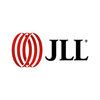What makes a city a talent hot spot?
In the war for talent, smaller innovation-focused cities like Denver are punching above their weight
Once considered the cable television capital of the world, Denver today has the sixth fastest-growing tech labor pool in North America and has solidified itself as an emerging life sciences hub.
Last year, Colorado saw more than double the amount of venture capital funding pour into startups, with $6.5 billion raised compared to the previous record of $2.7 billion set in 2019 and repeated in 2020, according to data from PitchBook.
The Mile High City is just one example of how fierce competition in major global cities has boosted the appeal of smaller, talent-rich cities like Denver, Stockholm, and Melbourne, which are punching above their weight in terms of attracting companies, according to JLL’s Innovation Geographies Report, which analyzed more than100 cities worldwide.
"These types of cities tend to outperform with stronger economic growth and rents,” says Carol Hodgson, JLL’s Senior Director of Global Research. “Structurally, they are better prepared for what’s coming in the future.”
The research looked beyond how innovative a city is in big tech, life sciences, and advanced manufacturing and dug into the human side.
Amy Guttman, Metro Denver Economic Development Corporation marketing and brand strategy director, asked herself the same question when she was hired three years ago to build a business brand for the Metro Denver region.
The Frontier Effect
Part of Denver’s draw is on companies who have a focus on incredible talent with people-centric initiatives around social responsibility and quality of life. Marketing the fact that Colorado is the second most educated state in the country has always been a major selling point.
“We needed a deeper understanding of who our workforce was – not just their credentials,” Guttman says, noting that a LinkedIn study stated only 10% of companies look at higher education alone when hiring.
To answer that question, she asked: Why does talent choose Denver?
One reason that stood out was that people chose Denver because of the community. So, instead of just selling Denver’s talent to get companies to relocate, Metro EDC refocused on selling its lifestyle to attract talent.
What they came up with was the idea of the Elevation Effect. “We used the mountains as a metaphor for how Coloradans are wired as people: they dream big, are collaborative, and refuse to choose between a great career and great lifestyle,” Guttman says.
Denver’s lower cost of living and talent-rich community were major selling points that Foresight Diagnostics Founder and CEO Jake Chabon highlighted when he convinced investors to move his liquid biopsy laboratory operations from Silicon Valley to Colorado.
“There’s a lot more talent here. It was actually a lot easier to operationalize our R&D team here in terms of scientists and technicians,” Chabon said during an Adams County Regional Economic Partnership Site Selection Summit.
He noted that many companies spend a lot of time recruiting for high-level positions in places like Boston and the Bay Area, “but those recruits would often jump ship a year later – hurting the company. In Colorado, people would be more dedicated to their mission and stick with them long term.”
And then there are the cost savings, with operating expenses about one-fifth of what he priced in Palo Alto for office and laboratory space. “That means we can stretch our money a lot further,” Chabon says.
Thriving, innovative cities also mustattract young people,says Hodgson on JLL’s Building Places podcast.
“If you’re bringing them in at universities and people stay, the culture grows as people age, settle down and have families,” she says. “Those younger cities tend to be a bit more vibrant.”
Dan McGowan, managing director of JLL Denver, says Denver’s forward-thinking innovation has also resulted in a shift in how startups are planting roots in the city.
“It used to be you’d create a tech company in Boulder, and after a few years work your way down to Denver, maybe ending up downtown as the company grew. Then, you’d sell your company to a larger corporation, and they’d take the data and technology and put it in Silicon Valley, New York, or Chicago,” McGowan says. “What we’ve seen over the last 10 years is that you still have the entrepreneurial spirit where you’re growing a company and moving down the corridor, but based on the emergence of Denver as an up and coming Tier 1 city, companies are staying and continuing the growth here.”
About JLL
For over 200 years, JLL (NYSE: JLL), a leading global commercial real estate and investment management company, has helped clients buy, build, occupy, manage and invest in a variety of commercial, industrial, hotel, residential and retail properties. A Fortune 500® company with annual revenue of $20.8 billion and operations in over 80 countries around the world, our more than 111,000 employees bring the power of a global platform combined with local expertise. Driven by our purpose to shape the future of real estate for a better world, we help our clients, people and communities SEE A BRIGHTER WAYSM. JLL is the brand name, and a registered trademark, of Jones Lang LaSalle Incorporated. For further information, visit jll.com.
